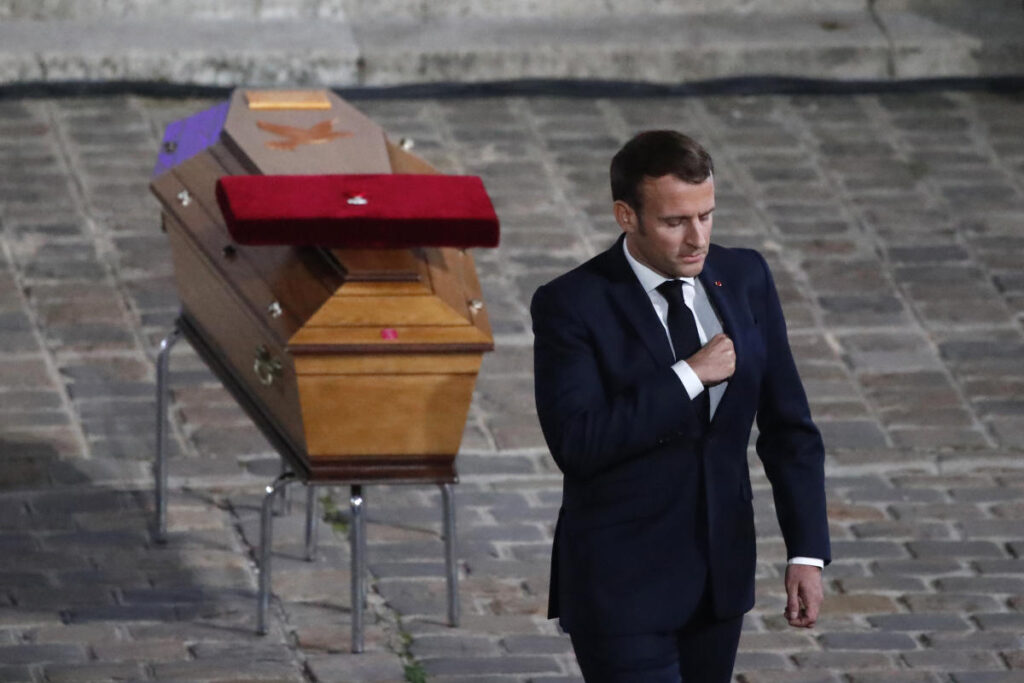The trial of eight individuals accused of terrorism in connection with the beheading of French teacher Samuel Paty began in Paris amidst significant national and international attention. Paty was murdered on October 16, 2020, by an 18-year-old attacker of Chechen descent, who took offense to Paty’s lesson involving caricatures of the Prophet Muhammad. This incident catalyzed a nationwide discourse on freedom of expression and secularism in French society, particularly following the revival of controversial cartoons by the satirical newspaper Charlie Hebdo. Paty’s death not only cast a stark light on issues of radical extremism but also reinforced France’s commitment to uphold democratic values and the principle of secularism, leading to many schools being named in his honor.
The attackers included friends of the assailant, Abdoullakh Anzorov, who allegedly assisted in procuring weapons for the attack. The trial also addresses those accused of spreading misinformation regarding Paty’s teaching and vilifying him online, steering public sentiment against the educator. Central to the case is Brahim Chnina, the father of a student who falsely claimed that his daughter was excluded from Paty’s lesson. He undertook an online campaign that helped incite hostility against Paty, leading to the teacher’s tragic murder. On the day of his death, Anzorov attacked Paty outside the school, ultimately sharing images of the decapitation on social media before being shot dead by police. Chnina will face serious charges for allegedly supporting terrorism through his incitements.
The context surrounding Paty’s teaching and his murder is critical to understanding the broader implications of this trial. Paty’s lesson on freedom of expression sought to facilitate discussion about sensitive topics, and he allowed students uncomfortable with the imagery to leave the classroom. Chnina’s erroneous belief that his daughter was excluded from this discussion led him to spread falsehoods about the teacher, which were detrimental to Paty’s safety. In the aftermath of the publicity generated by Chnina’s misinformation, Anzorov acted violently, signaling the extremities that can arise from misinformation and unsubstantiated outrage.
Other key players in the trial include Abdelhakim Sefrioui, a controversial figure who had previously claimed to represent religious leaders in France. Sefrioui’s public denunciation of Paty further fueled animosity towards the teacher. He disparaged Paty in a video shared widely on social media, potentially mobilizing hate against the educator and leading directly to the incitement of violence. Both Sefrioui and Chnina risk lengthy prison sentences if convicted of their roles in the incident. The legal arguments will focus on the intent behind their statements and whether any of their actions constituted direct incitement to violence against Paty.
Investigators revealed that Anzorov had knowledge of Paty’s identity through pro-jihadist social media channels. This underscores a concerning connection between online radicalization and real-world violence in France—a country that has suffered from a series of terrorist attacks linked to radical Islamic ideology. Anzorov’s connections to his accomplices, who face severe charges, also exhibit how groups can mobilize online to bring harm to individuals who symbolize Enlightenment ideals, such as freedom of expression. Complicity in murder charges against Anzorov’s friends shape the narrative around engagement with extremist networks, raising questions regarding accountability for those who participate in or facilitate violent actions, even indirectly.
As the trial progresses, its implications resonate beyond France, echoing in the global dialog concerning radicalism and freedom of expression. The killing of Samuel Paty reflects the challenges faced by democratic countries in balancing respect for diversity with the fundamental rights associated with free speech. The societal consequences of Chnina’s disinformation campaign and Sefrioui’s provocations raise alarming considerations regarding the fragility of social cohesion in multicultural societies. Furthermore, another violent act against an educator in France in October 2023 highlights the persistent threat posed by extremism, reflecting ongoing struggles against radical ideologies that challenge foundational principles of democratic discourse and expression.
As a trial marked by complex layers of social, political, and ethical considerations unfolds, it becomes a significant point of reference in understanding the intersecting paths of education, expression, and extremism in contemporary society. The judgments rendered in this case will not only determine the fate of the accused but may also influence France’s future policies concerning free speech, the role of education in fostering tolerance, and the ever-pressing fight against radicalization. The legacy of Samuel Paty, and the societal introspection triggered by his tragic death, calls for powerful reflections on humanity’s shared commitment to uphold the values of freedom, tolerance, and understanding in the face of adversity.

